Psoriasis is a non-contagious chronic inflammatory skin disease characterized by rapid growth of the outer skin layer, resulting in thick, silvery flakes of scale on raised pinkish red skin with well-defined margins . Itching is often experienced in hot humid climates.
- Psoriasis on the elbows
How common is it?
- It is estimated to affect 1-2% of the population in Singapore, and is one of the top ten most common skin diseases treated here. The condition is more prevalent in Europe reaching its maximum in Scandinavia.
What does psoriasis look like?
- There are several types of psoriasis, the most common (>95%) being chronic plaque psoriasis , where the raised scaly skin lesions have well defined borders, usually on the elbow, knees, back , or scalp .
- This may become more extensive and become erythrodermic psoriasis , where the whole body is red, dry and scaly, and the affected person feels cold from too much heat loss. Less commonly, the skin lesions are small like raindrops, called guttate psoriasis. This form is often triggered by throat infections.
- In inverse psoriasis, the skin folds, such as the groin and under the breasts, are affected and appear red, smooth and shiny.
- Sometimes, psoriasis may be pustular, having small pus-filled blisters, which may be just in one area (e.g. fingers), or involve the whole body, when the affected person may experience pain and may be very ill.
Pustular Psoriasis (Courtesy of P.Mustafa MD)
- About 5 –15% of patients may also develop arthritis (pain and swelling of the joints) , which can cause permanent deformities of the joints.
- Many have involvement of the nails with small pits, lifting of the nails from the nailbed, discolouration, or thickened ugly nails . Nail lesions are sometimes associated with articular involvement.
Why does psoriasis happen?
- Studies suggest that genes play an important part in making one prone to the development of psoriasis, although environmental factors may be necessary to trigger the appearance of psoriasis.
- The immune system, once activated, triggers the rapid growth of skin cells, which reach the surface in 3-4 days instead of the usual 28 days.
What environmental factors are important?
- Physical and emotional stress can worsen psoriasis, as can throat infections or the flu.
- Some drugs (e.g. certain high blood pressure medications, steroid hormones) may provoke the appearance of psoriasis.
- Scratches, cuts and sunburn may cause psoriasis to flare up at the sites of injury.
When does it start?
- It can start at any age, from babies to the elderly.
- It most commonly starts in the 20 to 30- year age group, and also in the 50-60’s.
Can it be cured?
- There is no cure for psoriasis but it can be controlled. However, response to a particular treatment varies from individual to individual, and it may take some time and some trial- and-error before a treatment that suits each individual is found.
- Once controlled, there will usually be periods of clearance (remission) alternating with periods of active skin disease. Unlike other chronic illnesses, it rarely shortens life expectancy. However, it can dramatically affect the quality of life. Physical discomfort is only one aspect of this – itch, or pain if the skin cracks, or if joints are affected. Importantly, both psoriasis and its treatment can cause social and emotional problems at work, school or at home.
How can it be treated?
- Regular use of moisturizers is important in reducing itching and scaling.
- Mild psoriasis is usually treated with topical creams, ointments or scalp solutions. These include coal tar, dithranol, salicylic acid, corticosteroids, or vitamin D-type drugs (calcipotriol or calcitriol).
- More severe psoriasis may require phototherapy with ultraviolet A (UVA) or B (UVB) light, which requires coming 2-3 times a week for treatment .
- Severe psoriasis not responding to the above may need tablets such as methotrexate, acitretin, cyclosporin and hydroxyurea. Unfortunately, oral medications can cause side effects such as bone marrow damage, liver damage and kidney damage, and requires regular blood tests to detect these side effects. Injections of biologic agents and oral small molecules are an exciting treatment with less troublesome side effects, but will take many more years before it becomes generally affordable for most people, and for its long term side effects to be known.
Common misconceptions:
- Can I catch psoriasis from my friend, colleague, or someone dropping skin scales on the bus?
No. So please don’t avoid such people as it adds further to their self-consciousness and emotional stress.
- Can I catch psoriasis from my family member?
It is not infectious, but there is a chance that the gene making one prone to psoriasis is inherited from an affected parent. However, the chance of developing psoriasis if one parent is affected is estimated to be only 1 in 10, increasing to 40% if both parents are affected.
Key points:
- Psoriasis is not contagious.
- Psoriasis is controllable, even though not curable
- Although it does not affect quantity of life, it affects quality of life – greater understanding from the public would help
Source of information: here



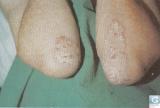
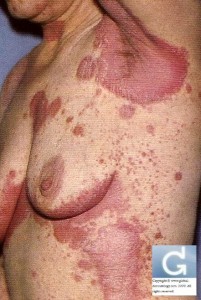
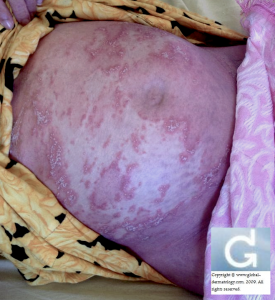
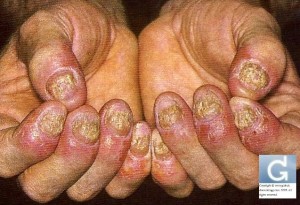
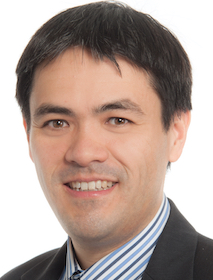
 +41 22 738 18 48
+41 22 738 18 48